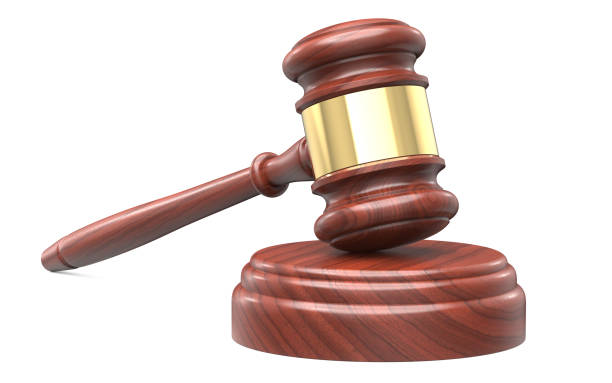A character reference refers to a letter vouching for the good character and positive qualities of a person involved in legal proceedings. When a person is charged with criminal offences, they may want to provide the court with character references before they are sentenced.
Character reference letter helps the Court understand the defendant. Such a letter may affect the applicable penalty to be imposed on the person charged with criminal offence. This article discusses matters relating to a character reference letter.
Who Can Make a Character Reference?
The following people may write a character reference for a person facing criminal charges:
- Neighbours
- Employers or colleagues
- Doctors
- Teachers
- Family friend
- Relative and family members
Additionally, these persons should be over 18 years of age and have a good reputation. While friends and family can make character references, this will be given less weight as opposed to those that professionals provide.
Importantly, a person can provide the court with more than one reference. However, the Court considers quality over quantity, as the character reference can influence the penalty the defendant may face.
What to Include in Character References for Court?
The referee, or the person writing the letter, should highlight the defendant’s good relationships within the community.
They should also discuss the defendant’s exemplary character and performance at work or school, as the case may be. The referee should provide details that support the issues the defendant is facing in court.
The referee may state the following when making court character references:
- Name and occupation,
- Their awareness of the crime that the defendant committed,
- Their awareness of the defendant pleading guilty (if applicable),
- How long they have known the defendant,
- Their relationship with the defendant,
- Their opinion of the defendant and his or her overall character, and
- If they have any idea of the defendant’s future and personal circumstances.
In addition to this, the referee should address the character reference to the presiding magistrate if the case is in the Magistrates Court. The addressee should change depending on the court location.
On the other hand, if the case is in the District Court or Supreme Court, the referee should address the sentencing judge or the presiding judge.
What to Exclude in Character References for Court?
What should referees exclude in the character reference for Court? Referees should be cautious on what they write as this may put the accused in an unfavourable situation.
People who are providing a character referencing for the accused are essentially trying to highlight a person’s character, hence it is advisable that one must not:
- Shift the blame to other people,
- Dictate to the the Court on what penalty to give the accused,
- Mislead the Court on false statements or evidence, and
- Plead to the Court to send the accused to jail.

Writing a Character Reference for Court
The person writing a character reference must:
- Explain the Relationship With the Defendant
Referees should explain their relationship with the defendant including how long they have known them for. The duration of the referee’s relationship with the defendant is a critical factor.
Courts give more weight to those who knew the defendant over many years versus those who knew the defendant for only a week or a few months. Hence, close friends or co-workers have an advantage over new found acquaintances.
- Share Their Opinion and Positive View of the Defendant
The referee must share their opinion and positive view of the defendant. This part is important in the body of the letter as it would show the defendant’s character.
The writer of the letter should also state the facts of the offence and their knowledge if the defendant has a history with the offence charged. Here is an example of this part of the letter:
“I am aware that the defendant was caught doing cocaine last week. Cocaine use is illegal and very harmful to a person’s life and body. Despite the defendant’s cocaine usage, he has been very helpful and nice to me as a co-worker.
He works overtime in our office just to help out new hires if they cannot understand their tasks. Moreover, he also offered to help me move to another house without expecting anything in return”.
- Address the Defendant’s Remorse, Shame, Insight, and Rehabilitation Prospects
It is prudent for the writer to include these 4 aspects. They may state the defendant’s actions showing that they felt ashamed (for instance, the defendant couldn’t look at the referee’s eyes).
The referee can also state how the defendant regrets their actions and how they want to make up for it by taking responsibility and accountability for any harm or inconveniences they have caused.
Additionally, the writer should state the defendant’s willingness to go through correctional programs or therapy sessions as the case may be.
Read more about writing a character reference in court here.

The Importance of Seeking Legal Advice
This article discussed all the relevant matters regarding character references in court for criminal proceedings. As mentioned earlier, the referee must keep in mind not to shift the blame to others as this may complicate the legal proceedings.
They must also not suggest penalties or fines since the Court makes the decision on these matters. The writer may also speak of relevant evidence such as any personal circumstances that may have contributed to the offence.
In addition, the referees should double-check which Court is the case being heard in, so that they may know who to address and where the letter should be sent.
They should also send the letter before the court hearing date so that the sentencing judge may review the contents of the letter.
However, this article only provides general information regarding character references. We highly advise you to seek legal advice for your specific situation.
JB Solicitors has a leading team of expert lawyers in Criminal Law. We have dealt with various criminal cases and have represented clients before the Court for drink driving, drug charges and other criminal offences.
Our lawyers can help you draft this letter if you would like to prepare one for a defendant. We can also answer any questions you may have regarding your case.
Do you have any more queries on character references or other areas of Criminal Law? Contact us today.
